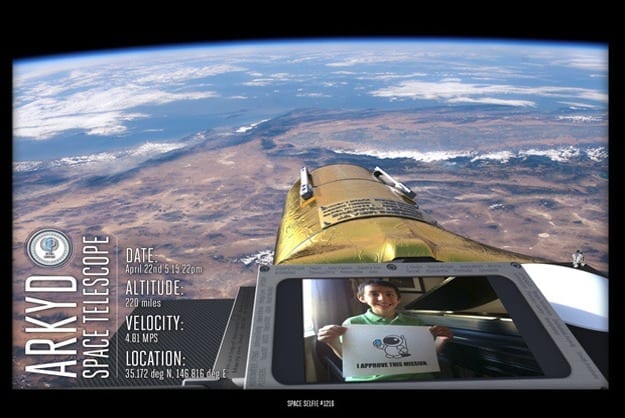
IN AMERICA alone, people spent $170 billion on “direct marketing”—junk mail of both the physical and electronic varieties—last year.
Yet of those who received unsolicited adverts through the post, only 3% bought anything as a result. If the bumf arrived electronically, the take-up rate was 0.1%. And for online adverts the “conversion” into sales was a minuscule 0.01%. That means about $165 billion was spent not on drumming up business, but on annoying people, creating landfill and cluttering spam filters.
Which might, in the modern, privacy-free world of sliced and diced web-browsing analysis, come as something of a surprise. Marketing departments gather terabytes of data on potential customers, spend fortunes on software to analyse their spending habits and painstakingly “segment” the data to calibrate their campaigns to appeal to specific groups. And still they get it almost completely wrong.
A group of researchers at IBM’s Almaden Research Centre in San Jose, California, however, is here to help. According to Eben Haber, the group’s leader, the problem is that firms are trying to understand their customers by studying their “demographics” (age, sex, marital status, dwelling place, income and so on) and their existing buying habits. That approach, he believes, is flawed. What they really need is a way to discover the “deep psychological profiles” of their customers, including their personalities, values and needs. And he and his team think they can provide it.
Modern psychology recognises five dimensions of personality: extroversion, agreeableness, conscientiousness, neuroticism and openness to experience. Previous research has shown that people’s scores on these traits can, indeed, predict what they purchase. Extroverts are more likely to respond to an advert for a mobile phone that promises excitement than one that promises convenience or security. They also prefer Coca-Cola to Pepsi and Maybelline cosmetics to Max Factor. Agreeable people, though, tend to prefer Pepsi, and those open to experience prefer Max Factor.
People are, of course, unlikely to want to take personality tests so that marketing departments around the world can intrude even more on their lives than happens already. But Dr Haber thinks he can get around that—at least for users of Twitter. He and his team have developed software that takes streams of “tweets” from this social medium and searches them for words that indicate a tweeter’s personality, values and needs.
The Latest Bing News on:
Dimensions of personality
- What Your Pet's Zodiac Sign Says About Their Personality (and Whether You're Compatible!)on May 8, 2024 at 12:00 pm
Just like humans, dogs and cats have zodiac signs that reveal a lot about their personalities and how they interact with others. Here's everything to know about your pet's zodiac sign and which pet ...
- This Collection of Modern Knobs, Handles, and Drawer Pulls is “Made to Stand Out”on May 5, 2024 at 4:00 am
Designed by Kaschkasch Studio, Made to Stand Out Collection.
- 17 of the Most Classic Designer Bags of All Timeon May 2, 2024 at 7:06 am
The Lady Dior was Princess Diana's favorite bag, and that alone says a lot. With its sleek quilted look and elegant top handle silhouette, this mini stunner is the perfect complement to all kinds of ...
- Extrovert or Introvert: Most People Are Actually Ambivertson April 25, 2024 at 4:00 am
Research on personality types in the middle of the extroversion-introversion scale is limited—yet the majority of people fall into this category ...
- New Play The Exact Dimensions Of Hell Explores The Chaos And Contradiction Of Teenage Girlhood And Witchcrafton April 24, 2024 at 11:33 pm
The relationship between witchcraft and teenage girls has been the subject of many books, films and television shows.Over time, the tradit ...
- Not an extrovert or introvert? There’s a word for that.on April 24, 2024 at 6:04 am
What does it mean to be an ambivert or an omnivert—and do these personality types have any scientific validity?
- “Parenting Doesn’t Matter”? Tell Me Another One.on April 23, 2024 at 1:34 pm
Brooks makes a lot of points in his essay that I support. Like the assertion that “the parenting technique that truly matters is warmth and affection” and the argument that “you will make a lot of ...
- 3 Psychological Tests To Take Before Your Next Job Interviewon April 16, 2024 at 3:30 pm
With the purpose of providing you with a greater understanding of your career preferences—while also highlighting work fields that align with your personality and interests—the RIASEC ...
The Latest Google Headlines on:
Dimensions of personality
[google_news title=”” keyword=”dimensions of personality” num_posts=”10″ blurb_length=”0″ show_thumb=”left”]
The Latest Bing News on:
Personality information
- Dog deserted by family ‘cries endlessly’ and needs new home. ‘Personality is dimming’on May 8, 2024 at 12:38 pm
“His spunky personality is dimming. This once jolly ball-lovin ... his profile says. For more information on Major or other adoptable pets, please visit here.
- He was a propaganda mastermind who shaped North Korea’s Kim family cult of personality. Now, he’s met his endon May 8, 2024 at 7:36 am
Kim Ki-nam helped forge a cult of personality around the Kim dynasty, serving every one of the country’s three leaders since its founding. He has died at the age of 94.
- Personality affects susceptibility of people to cybercrimeon May 8, 2024 at 6:49 am
Personality type is a major factor in people’s vulnerability to cybercrime, a Stellenbosch University (SU) researcher has established. People with an “agreeable” personality were more vulnerable than ...
- Each manufacturing project has its own personality, experts sayon May 6, 2024 at 7:46 am
A panel of builders during last week’s Construction Dive webinar said that the future looks bright, but labor problems will continue to plague the industry.
- The Top 5 Personality Traits Essential For A Successful Businesson May 6, 2024 at 3:00 am
Almost all successful entrepreneurs have a story about a time they were on the brink of failure but managed to turn things around.
- 5 Careers For The ENTP Debater Myers-Briggs Personality Typeon May 5, 2024 at 9:00 am
The ENTP personality type, also known as ‘the debater’ are confident visionaries who enjoy taking on extreme challenges. Find the top careers for the ENTP type ...
- The Personality of a Capricorn, Explainedon May 1, 2024 at 3:00 am
Indeed, inside every earnest Capricorn is a mischievous troublemaker (in tarot, Capricorn is symbolized by the "devil" card). Though this earth sign may seem a bit conservative and restrained at first ...
- What is ‘Ozempic personality’? Users report changes in moodon April 29, 2024 at 7:33 pm
Some users taking weight-loss drugs say they are experiencing side effects that include a change in habits and moods, but not always for the better. NBC’s Vicky Nguyen reports for TODAY on what’s ...
- Could Your Personality Influence Your Running Style?on April 29, 2024 at 1:55 pm
Personality tests tend to be the domain of workplace strategy sessions or sheer entertainment—for instance, which Hogwarts house you'd be sorted into, or Friends character you m ...
- The Latest Theory on Borderline Personality Disorderon April 27, 2024 at 6:09 am
Theories of borderline personality disorder focus on early emotional experiences as the cause of splitting. A new approach uses statistical modeling to see what factors influence the tendency toward ...
The Latest Google Headlines on:
Personality information
[google_news title=”” keyword=”personality information” num_posts=”10″ blurb_length=”0″ show_thumb=”left”]










